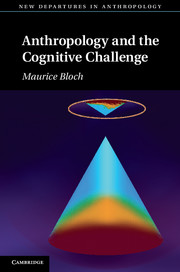Book contents
- Frontmatter
- Contents
- Acknowledgements
- 1 Why anthropologists cannot avoid cognitive issues and what they gain from these
- 2 Innateness and social scientists' fears
- 3 How anthropology abandoned a naturalist epistemology: a cognitive perspective on the history of anthropology
- 4 The nature/culture wars
- 5 Time and the anthropologists
- 6 Reconciling social science and cognitive science notions of the ‘self ’
- 7 What goes without saying
- 8 Memory
- References
- Index
2 - Innateness and social scientists' fears
Published online by Cambridge University Press: 05 August 2012
- Frontmatter
- Contents
- Acknowledgements
- 1 Why anthropologists cannot avoid cognitive issues and what they gain from these
- 2 Innateness and social scientists' fears
- 3 How anthropology abandoned a naturalist epistemology: a cognitive perspective on the history of anthropology
- 4 The nature/culture wars
- 5 Time and the anthropologists
- 6 Reconciling social science and cognitive science notions of the ‘self ’
- 7 What goes without saying
- 8 Memory
- References
- Index
Summary
Everybody recognises that the way people behave is in terms of how they know things to be. But where does this knowledge come from? How does it develop in the individual? These very general questions are a good beginning for understanding the need for a psychological input to the social sciences since learning, storage and use of this knowledge is both a mental and a social process.
There can only be three possible sources to the knowledge held by people. (1) It can come from an innate capacity, transmitted genetically from the parents, which either the child already possesses at birth, or which develops later, as he or she matures, much in the way that boys develop facial hair at adolescence. (2) It can come from the individual learning from the environment as she interacts with it. (3) It can come from learning from other individuals through some process of communication. For any part of knowledge we may be dealing with a combination of all three.
- Type
- Chapter
- Information
- Anthropology and the Cognitive Challenge , pp. 14 - 23Publisher: Cambridge University PressPrint publication year: 2012

